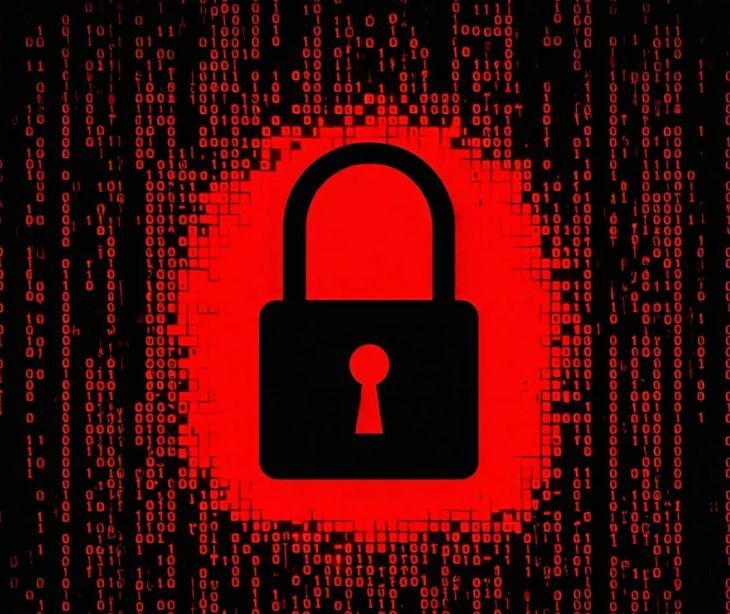4 min read
Vibra Hospital of Sacramento notifies patients of data breach 7 months later
Lusanda Molefe Nov 3, 2025 6:04:25 PM

Vibra Hospital of Sacramento has disclosed a data breach affecting an undisclosed number of patients after unauthorized access to employee email accounts exposed sensitive medical and financial information over ten days in March 2025. The California critical care hospital discovered suspicious activity on March 13, 2025, but did not complete its review to determine what information was compromised until August 4, nearly five months later, before finally notifying affected individuals on October 3.
What happened
On or around March 13, 2025, Vibra Hospital of Sacramento discovered suspicious activity related to several employee email accounts. The hospital immediately secured the affected accounts and engaged third-party cybersecurity specialists to investigate the incident's full nature and scope.
On August 4, 2025, Vibra Hospital completed its review and confirmed that a limited amount of personal information may have been accessed by an unauthorized third party. The hospital posted a data security notification on its website on October 3, 2025, and began mailing notification letters to potentially impacted individuals the same day.
According to breach notification letters sent to affected patients, the potentially accessed information may have included names, addresses, dates of birth, Social Security numbers, dates of medical service, medical diagnosis information, individual health insurance policy numbers, physician or medical facility information, medical condition or treatment information, Medicare or Medicaid numbers, patient account numbers, and financial account numbers.
"The potentially impacted information may vary for each individual and may include all or just one of the above-listed types of information," the hospital stated in its notification.
The big picture
Vibra Hospital of Sacramento is a critical care facility located in Folsom, California, specializing in long-term acute care for patients with complex and chronic medical conditions requiring extended hospitalization. The facility is part of Vibra Healthcare, a national healthcare provider headquartered in Mechanicsburg, Pennsylvania, that operates more than 20 hospitals across 10 states and employs over 5,000 professionals nationwide.
The breach represents a significant compromise of both personally identifiable information (PII) and protected health information (PHI), creating substantial risks for affected patients. The exposure of Social Security numbers combined with detailed medical information and financial account details creates a perfect opportunity for identity thieves who can use this data for medical identity theft, fraudulent insurance claims, and traditional financial fraud.
Email compromise incidents in healthcare settings are particularly concerning because employee email accounts often contain extensive patient information accumulated over time through routine communications with patients, insurance companies, and other medical facilities. Unlike targeted database attacks, compromised email accounts can expose diverse types of information across multiple patients in a single breach.
Why it matters
The five-month gap between discovering the breach in mid-March and completing the data review in early August has drawn scrutiny from privacy advocates and multiple law firms now investigating the incident. Healthcare providers are required under HIPAA to conduct timely breach investigations and notify affected individuals without unreasonable delay once a breach is confirmed.
The extended timeline left patients unable to take protective measures during a critical window when their information may have been actively circulating or being exploited. While Vibra Hospital stated it has "no evidence indicating any information was subject to actual or attempted misuse," the absence of evidence does not guarantee that information was not misused, particularly given the time elapsed.
For patients whose information was exposed, the combination of medical and financial data creates lasting vulnerability. Medical identity theft can result in fraudulent charges, inaccurate medical records that affect future care, and insurance complications that take years to resolve. Financial account information exposure adds traditional fraud risks that require ongoing monitoring.
What they're saying
In its notification to patients, Vibra Hospital apologized for the incident, "The privacy and security of information is of the utmost importance to us. While it is regrettable that this potential exposure occurred, please rest assured that we are taking all necessary steps to protect against future incidents."
The hospital added, "At this time, there is no evidence indicating any information was subject to actual or attempted misuse as a result of this incident. In an abundance of caution, Vibra Sacramento performed a thorough review of the affected information to identify and subsequently notify all potentially affected individuals."
By the numbers
The Vibra Hospital breach exemplifies a costly trend affecting healthcare providers nationwide. According to the IBM Cost of a Data Breach Report 2025, the average cost of a data breach in the healthcare sector has reached $10 million, making healthcare the most expensive industry for breaches for the 14th consecutive year.
These costs extend far beyond operational recovery, encompassing regulatory penalties and litigation expenses. Email compromise incidents carry financial consequences for healthcare organizations that fail to protect patient information.
The Solara Medical Supplies case shows how quickly costs can escalate following an email breach. After a phishing attack allowed unauthorized access to eight employee email accounts, similar to the Vibra Hospital incident, Solara faced an Office for Civil Rights (OCR) settlement totaling $3 million and a separate class action lawsuit settlement of 9.76 million. Nearly 70% of IT healthcare leaders estimate that the cost of a HIPAA violation tied to email would exceed $250,000.
Melanie Fontes Rainer, Director of the HHS Office for Civil Rights, has issued direct warnings about the necessity of proactive security measures, "HIPAA-regulated entities need to be proactive in ensuring their compliance with the HIPAA Rules, and not wait for OCR to reveal long-standing HIPAA deficiencies."
FAQs
What is long-term acute care?
Long-term acute care hospitals (LTACHs) provide specialized treatment for patients with serious medical conditions requiring extended hospitalization, typically 25 days or more. These facilities serve patients with complex needs such as prolonged ventilator dependency, multiple organ system failures, or serious infections who need intensive monitoring but are stable enough that they don't require traditional intensive care unit services.
What is email account compromise?
Email account compromise occurs when unauthorized individuals gain access to legitimate email accounts, often through phishing attacks, credential theft, or exploiting weak passwords. Unlike external hacking of systems, compromised email accounts allow attackers to view historical messages, attachments, and contacts, potentially exposing years of sensitive communications and data.
What is medical identity theft?
Medical identity theft occurs when someone uses another person's personal information to obtain medical services, prescription drugs, or file fraudulent insurance claims. This can result in incorrect information being added to medical records, affecting future diagnosis and treatment, as well as creating financial liability for services the victim never received.




